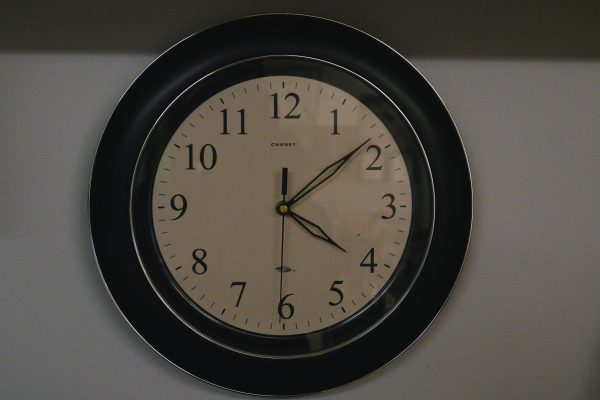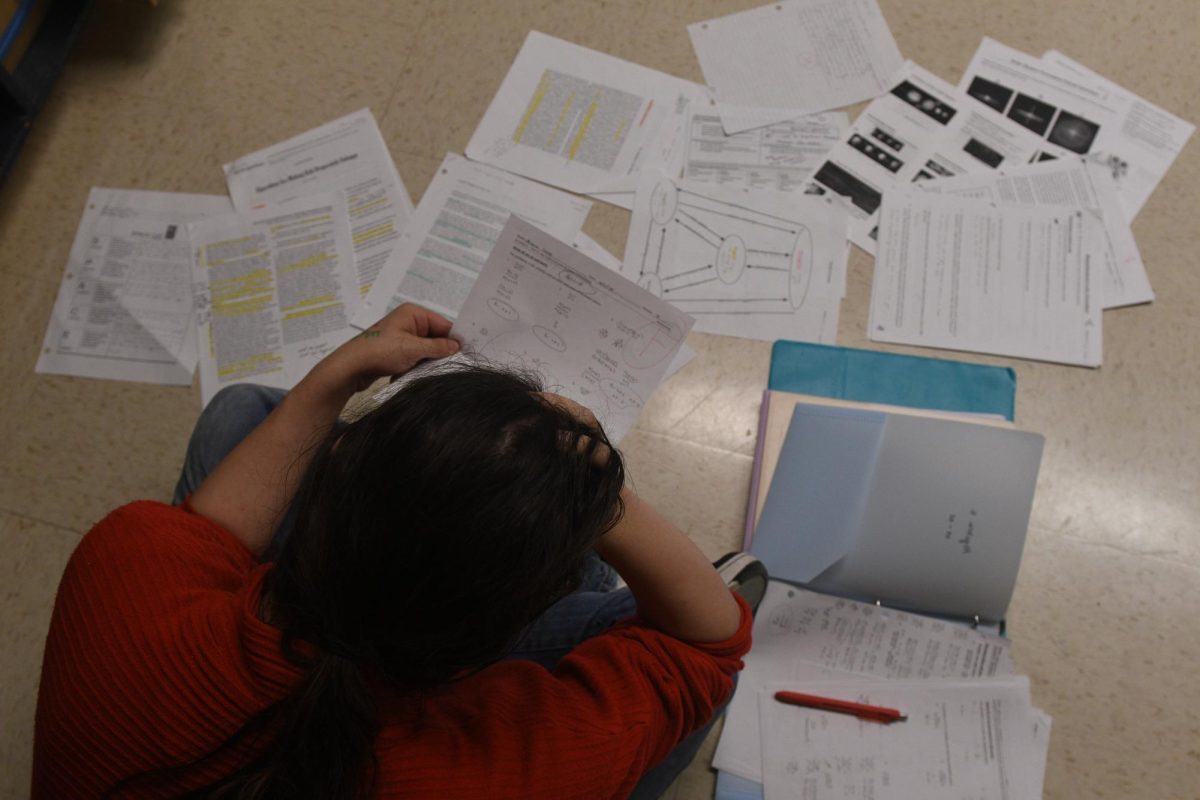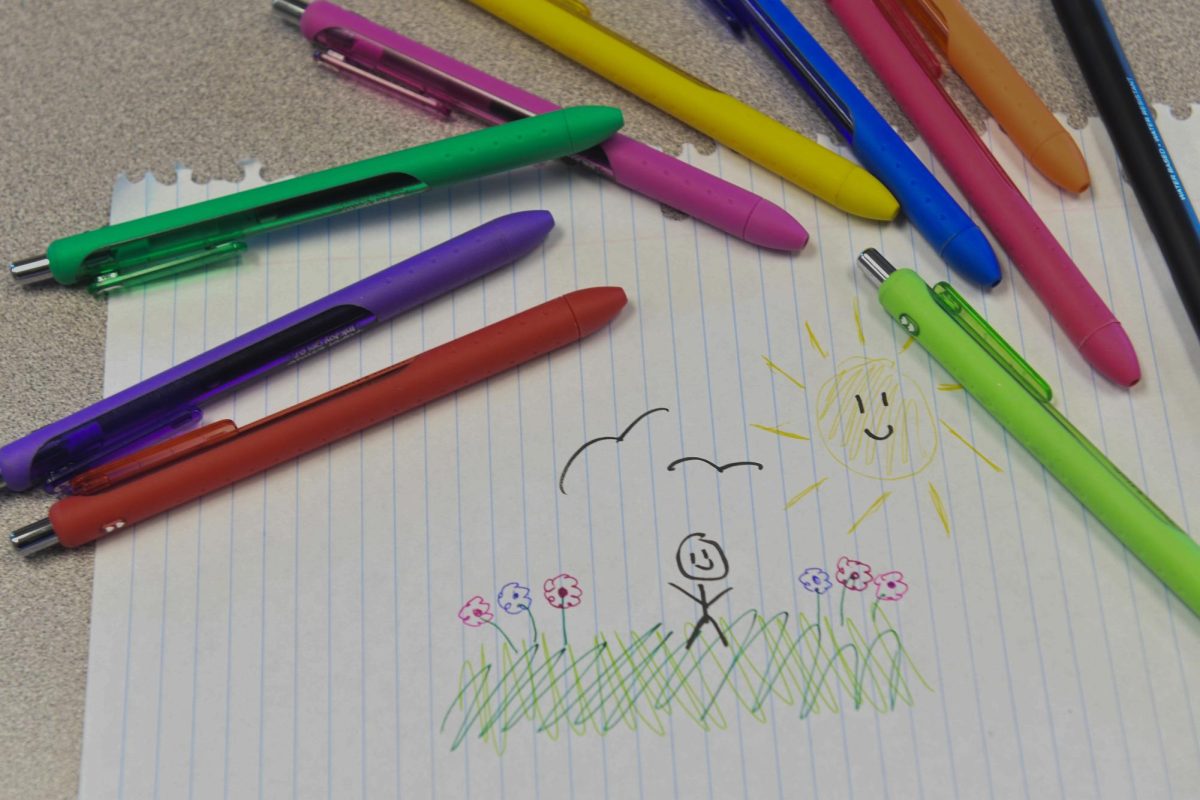English packets, math homework, science projects, multiple weeks in a row with not a three day weekend in sight. Along with all the other expectations of school and grades, this can get both staff and students feeling burnt out, especially towards the end of the year. As graduation pushes closer, senior Emily Eilers feels that AP Literature, a class she needs the credit for to graduate, is the class causing her the most burnout.
“It has a constant, consistent workload, and it’s overloading me with paper after paper after paper, and it makes me kind of scatterbrained,” Eilers said. On a year-to-year basis, the AP Literature curriculum ranges from 7-9 novels and at least two plays.
For junior Jake Ly, the class he feels most affected by is Pre-Calculus. With long notes, complex math, and homework, the curriculum can be difficult.
“Because of the complexities and the puzzle piece material that is being taught, it works in different ways where my brain [doesn’t] typically specialize in,” Ly said. “It’s just harder for me to think in the ways that the teacher is teaching me.”
With a seemingly never-ending stream of work in courses where it’s crucial for students to succeed, some students may begin to feel this academic burnout which can affect them in other aspects of their lives.
“My weekends have become consumed with schoolwork; it no longer becomes a weekend for me,” Eilers said, “it’s supposed to be a break from school, but on the weekends lately, I’m just doing homework and thinking about my next essay, or my next upcoming test.”

Getting stressed out isn’t the only impact academic burnout has on students’ lives. Ly has felt this impact on his relationships, his day-to-day mood, and has become more serious.“I hate the way it affected my life because I’m usually known as a person [who’s] very outgoing or happy, but sometimes I switch up because of what’s going on in the moment,” Ly said.
Students aren’t the only group who suffer from burnout; teachers have multiple class periods of work to grade, lessons to plan, and students to teach. “Just like you guys, we get tired, right? And I feel a heavier weight to continue making things meaningful and exciting.” English Teacher Krissy Rasmussensaid. Along with their feeling of burnout, it can be difficult for teachers to see their students struggling. “When I can see how tired you all are, I get very frustrated, and I try not to,” Rasmussen said, “there are external things beyond all of our control that make life difficult, the SBAC testing, unfunded mandates, those things, they exhaust to the point that kids are kind of being filtered through.”
When these feelings of burnout arise, it can be hard not to feel affected by it, but there are strategies students can use to cope. One activity that helps Ly feel better about burnout is being outside and moving his body. “We live in a very green state, so I like going on hikes. Not only is the view perfect once I get up to the top of whatever I’m climbing, but it’s also good exercise for me,” Ly said. Exercising can benefit people in both aspects of the mind and body. Eilers also feels that exercise helps her feelings of burnout, but she also finds that a few extra hours of sleep can help her feel more optimistic about going to school when things feel overwhelming. “Going to school tired, it encourages the burnout, so I really try to get extra sleep so that it doesn’t happen,” Eilers said.
Spending time with people who you enjoy being around, doing activities that you enjoy, can also help push past the stress and work of school. “It feels like a really good detox because I’m with like-minded individuals, and we get to do activities that we both love, and it helps with engagement,” Ly said.
In order to avoid and combat burnout so students can be successful in both school and relationships, students need an ample amount of time to do so. This year, as a result of missing school during the GAPS Teacher Strike in Nov., we’ve lost out on multiple three-day weekends and lost some early release days. Eilers feels the loss of three-day weekends doesn’t leave her with sufficient time away from school. “The idea of Wednesdays not having early release, that’s fine, but the breaks, I really rely on those breaks to refresh,” Eilers said.
Dealing with academic burnout can be difficult and almost unavoidable throughout the school year, whether it’s for teachers or students. As the end of the year approaches, students can remind themselves that summer is soon and school is a temporary struggle. “Managing school work and all the extra stuff can be really challenging, but I think it’s worth it. Graduating with a good grade and a good record, that’s [how] I kind of keep myself going, through that message.” Eilers said.









